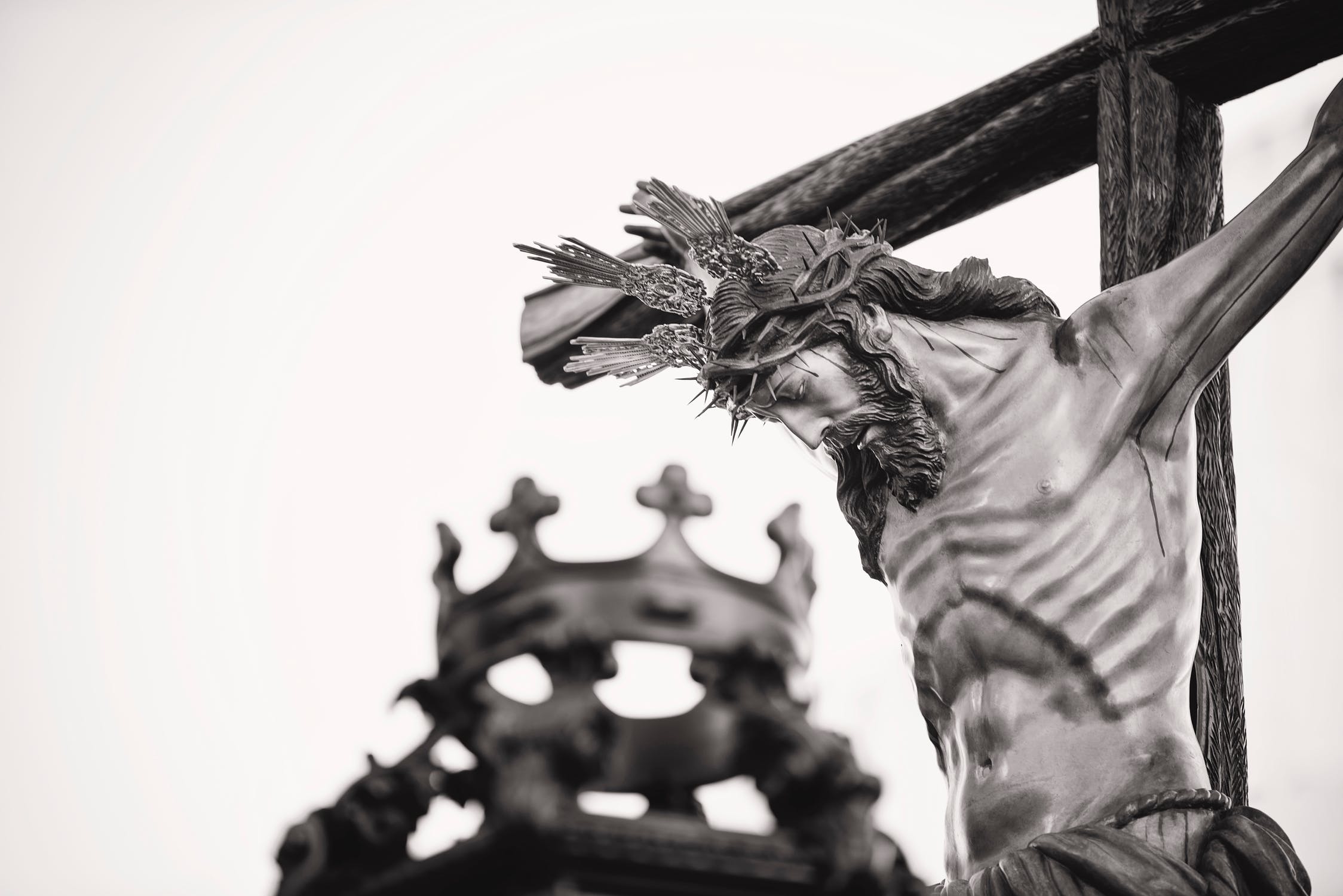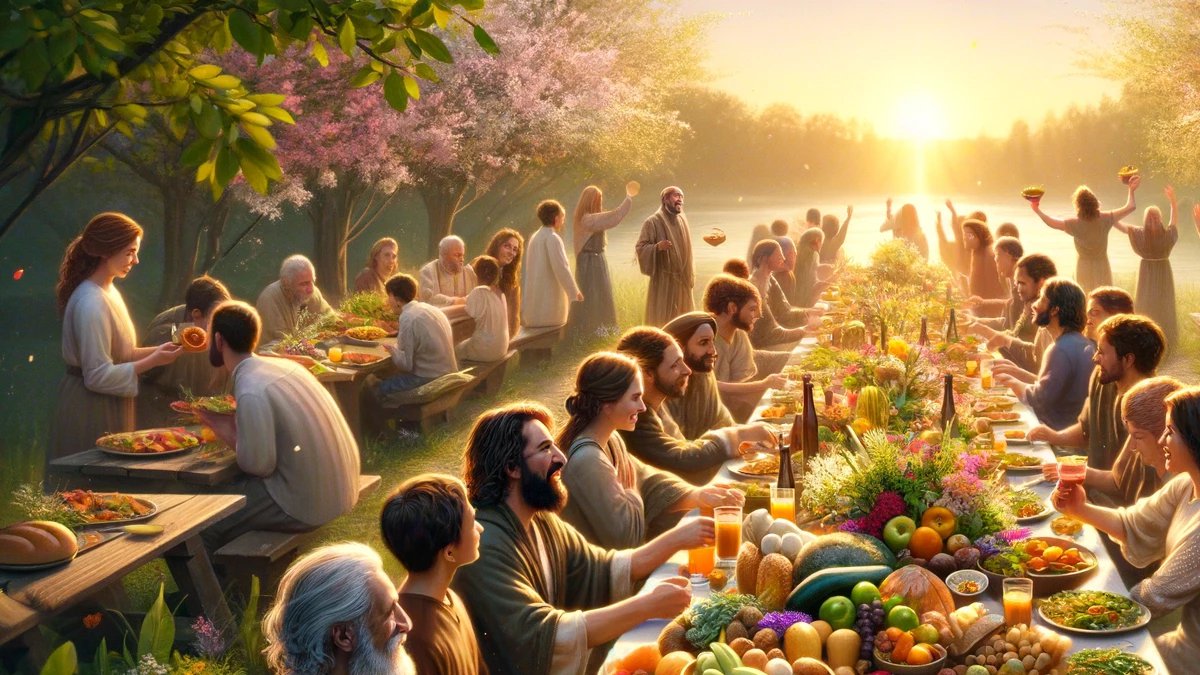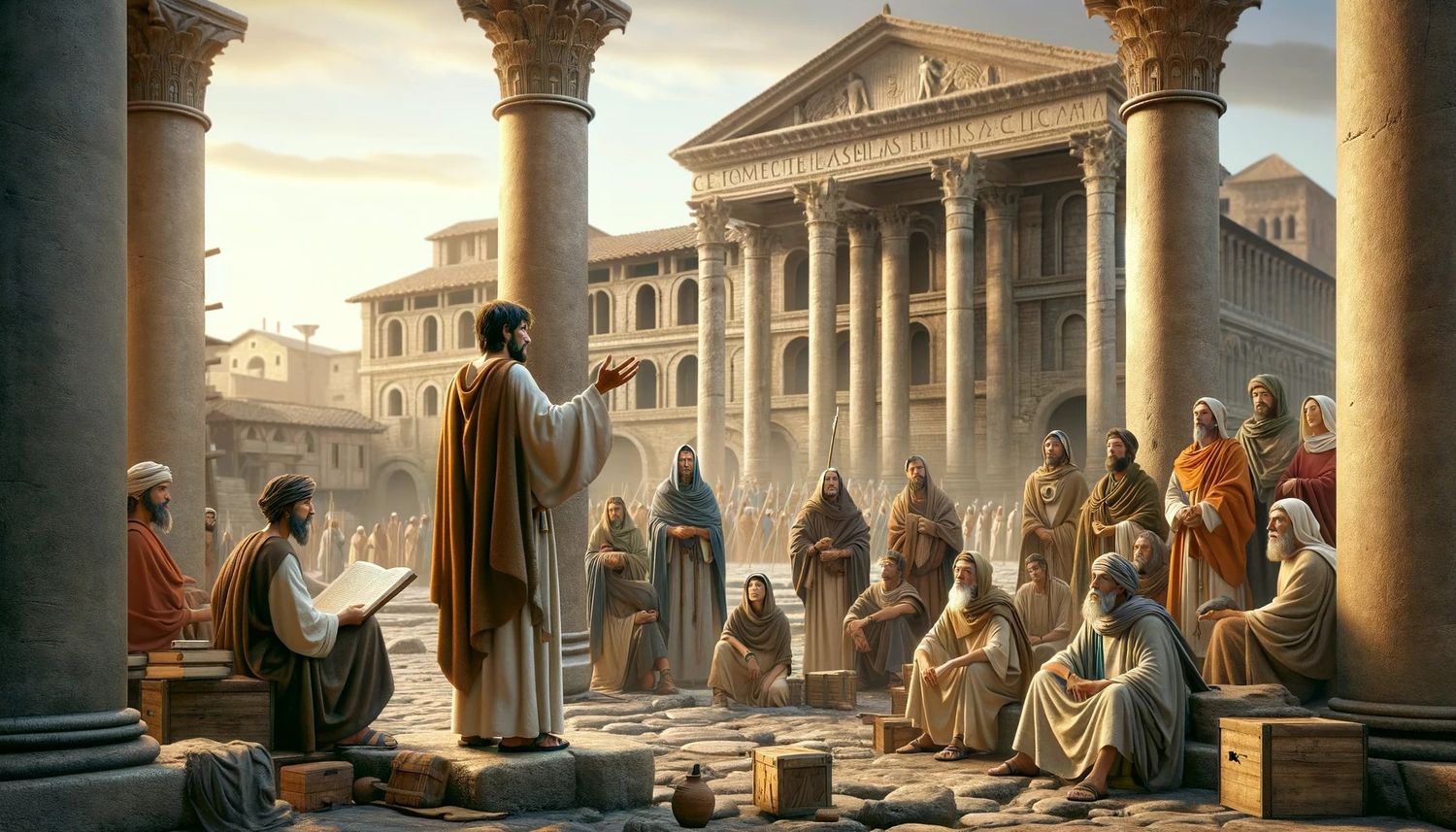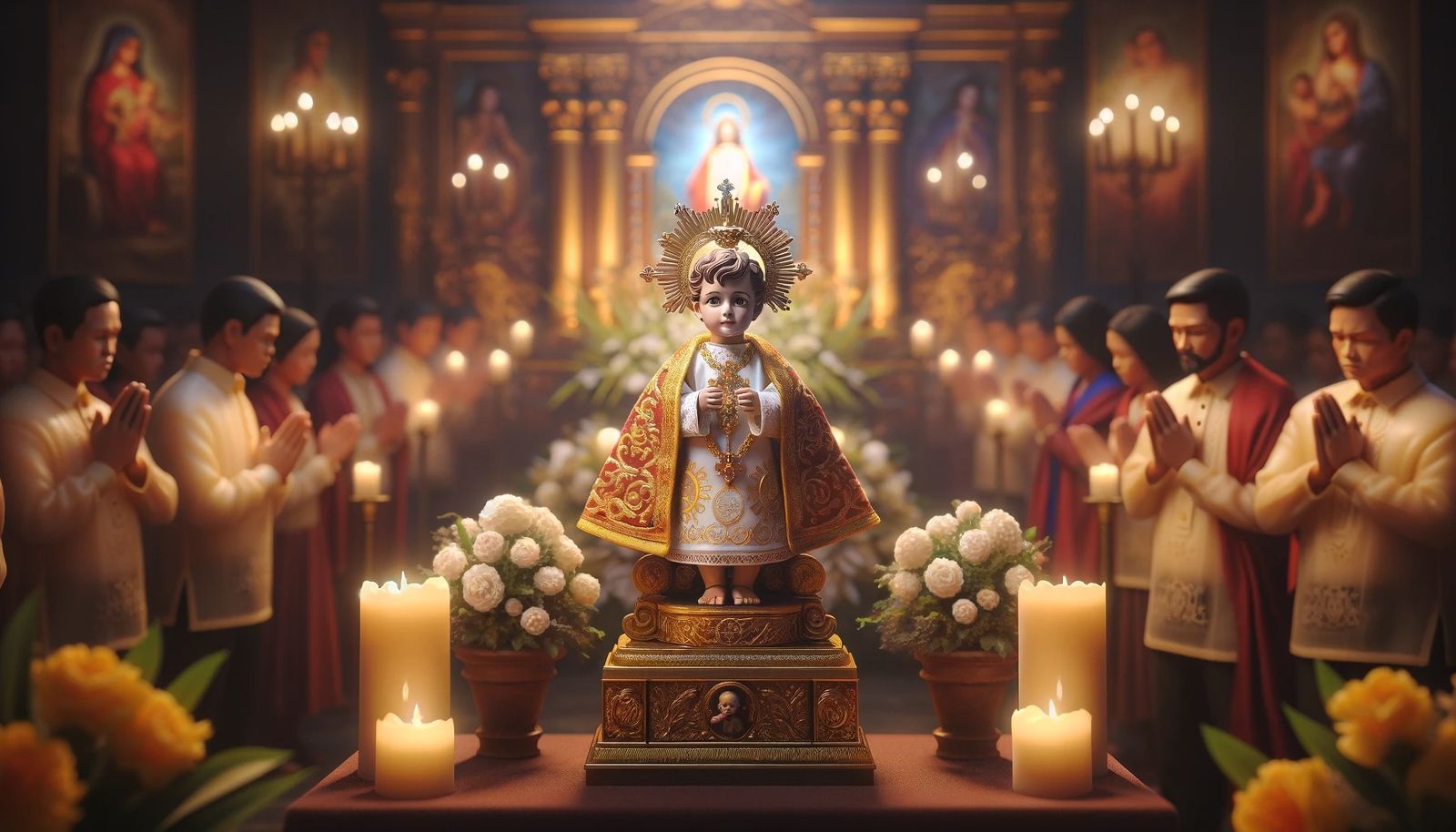Home>Christian Resources>When Does Lent Start and What Is It?


Christian Resources
When Does Lent Start and What Is It?
Modified: January 9, 2024
Ericka Andersen, an editor at Christian.net, expertly merges digital strategy with content creation, focusing on faith and societal issues. Her communication skills enhance the platform's engaging narratives, fostering meaningful dialogue on belief's impact on society.
When does Lent start &what is Lent? When does Lent start and end in 2020? Find the answers to these questions about the Lenten season here.
(Many of the links in this article redirect to a specific reviewed product. Your purchase of these products through affiliate links helps to generate commission for Christian.net, at no extra cost. Learn more)
One of the most earnestly observed Christian practices is the season of Lent. It is an important observance for millions of Christians around the globe. Roman Catholic, Anglican, Orthodox Catholic and some denominations of Protestant churches, in particular, take part in this solemn practice. Furthermore, both the Eastern and Western churches participate in these 40 days before Easter. However, they have varying methods of numbering these 40 days. The Eastern Orthodox church covers Sundays on these 40 days. On the other hand, the Western churches do not include Sundays on the account. They exclude Sundays as a remembrance of the resurrection of Jesus. Even so, when does Lent start during this timeline?
The Eastern and Western Catholic churches have different points of reference. They start on different days and end distinctly. To the Eastern churches, the Great Lent begins on the 7th week before Easter, which is is Monday whereas Western churches start on the 7th Wednesday before Easter. The Roman Catholics call this beginning of Lent, Ash Wednesday. Various churches have different ways of observing the Lenten season. However, the essence of these days is in a single symmetry. It all points to a deeper intimacy with God through these days of self-denial and devotion to Him.
Still, the indispensable significance of Lent dwindles as generations reshape. Today, not all Christians observe Lent. Moreover, not all denominations of Christianity perceives the value of the Lenten season. Every once in a while, a reminder to this solemn observance will be of great help to one’s spiritual growth. This is not only to remind us of the sacrifice Jesus made, but also to inspire us for this purposeful occasion.
What is Lent?

Photo by Hugo Fergusson from Unsplash
Lent is a religious practice of a six-week solemn observance before Easter Sunday. It is the 40 days period leading up to Easter. In this season, Christians commit preparation before the Easter celebration by replicating the accounts of Jesus’ sacrifices. It remembers the 40 days fasting of Jesus Christ, His crucifixion on the cross, and death. Furthermore, Easter Sunday represents the day Jesus resurrected and defeated death. Christians all around the world observe varying ways of showing sacrifices.
Though fasting used to be a sacrifice of only food, today fasting can be a sacrifice of anything that has deep importance to an individual such as staying away from video games, cellphones, television, food, and more. Instead, Christians who are fasting, will spend this time in prayer and remembering what Jesus has done for us. These sacrifices are spiritual preparations before the celebration. It is almost comparable to the Advent period before Christmas. Christmas celebrates the birth of baby Jesus whereas Easter commemorates His resurrection.
Unlike the Advent season which traditionally comes with great excitement, Lent is solemn. The anticipation of Christmas is ornamented with joyful melodies and bright colored decorations. Lent has a different tone, however. It is more tranquil and focuses on intimacy with God. It prepares one’s heart, mind, and soul to the days of remembering Christ’s Calvary and victory. This preparation suggests numerous ways to develop a deeper understanding of Christ’s suffering. It also leads Christians to have a closer relationship with Him as it sacrifices one’s desire for an intimate connection with God. Some of these preparations include fasting, devotion, penance, personal and corporate prayers. Traditional purposes also encompass suppressing the flesh, repentance of sins, and almsgiving.
Read more: When Does Coptic Lent Start
The Meaning of the Word “Lent”
The word “Lent” means spring. Before Christian churches defined it as a period of penitential preparation for Easter, it was a simple term implying spring. It comes from the old English word “Lencten” or “lengten” which means springtime or spring. Lent is a shortened form of the Middle English word “Lenten”. This term is related to long or longer days. The word lent is not found in the Bible with scriptural importance. Even so, the Lenten season has been developed into an important event in the Christian calendar.
The forty days Lenten period originated from the Latin word “Quadragesima” meaning forty. Aside from Jesus’ fasting before He began His ministry, forty has other resonance in the Bible.
The Purpose of Lent
The Lent season is a favorable occasion of reflection and reconnecting with God. For the entire year, busy schedules run over our days. Everyone’s mind is being occupied with the world’s urgency and demand. Lent offers the opportunity to contemplate with our own life and the life Jesus led. Although the remembrance of Christ’s passion on the cross reminds us of our sins. It still directs us to God’s great love and His sacrifice that we may embrace heaven afterward. Realizations of His love and the promise that awaits us shall fuel us then to set aside time for Him and with Him. It will propel us to repent and fast.
Righteousness is not of works but faith (Ephesians 2:8-9). We cannot earn God’s forgiveness by fasting nor by almsgiving. It is by faith that we can please God as Abraham pleased God because of his faith (Genesis). Many Christians misunderstand the motivation of the Lenten season. It is to draw closer to God with open hearts and not of works. There is no way one can come nearer to God without repentance for God is Holy. This is why one must repent. We spend time with Him during Lent but this connection should not only be bounded by seasons.
When Does Lent Start?

Photo by Ahna Ziegler from Unsplash
Why does the date of Lent vary every year? When does lent start exactly? Well, since Lent does not follow the Gregorian calendar but the Liturgical calendar, the date of Lent varies each year. The liturgical calendar is also also known as the Christian year or the Church year. This calendar is composed of the liturgical seasons essential in Christian faith. It consists of feast days and other significant seasons including Advent and Christmas. Six seasons comprise the Liturgical year which covers the Lent and Easter. Hence, when does Lent start in these divisions of periods?
Lent starts on the 7th Wednesday before Easter following the Western churches. This prominent day is called Ash Wednesday. The reason behind its name is quite simple, it is because ashes mark this day. Ash Wednesday is 46 days before Easter Sunday. Yet, it is mentioned clearly that the observance of Lent only spans for forty days. So where do the six days go? These days were Sundays which were not considered a part of Lenten fast but a celebration rather. It celebrates the resurrection of Jesus Christ. Meaning to say, Sundays after the Ash Wednesday are excluded from the 40-day observance of Lent.
Conversely, The Eastern Orthodox churches observe the Lent season with a different reference day. When does Lent start for Eastern churches? It starts on Monday of the 7th week before Easter. Unlike the West, the Eastern Orthodox chburches includes Sundays on the 40-day observance of lent. The Great Lent ends on a Friday and nine days before Easter Sunday.
When Does Lent Start and End in 2020?
The Lenten season in the year 2020 starts on Ash Wednesday, which is February 26, 2020. It will end on April 9 Maudy Thursday. But if you are following the 40 days tradition, Lent will end on April 11 Black Saturday, the day before Easter. The different account on the end of Lent is due to the Roman Catholic tradition. The 1969 General Norms for the Liturgical Year and the Calendar says that Lent runs until the Mass of the Lord’s Supper exclusive. This Mass of the Lord’s for the Roman Catholic churches is on Holy Thursday or Maudy Thursday.
When does Lent start and end for Eastern Orthodox churches? For those following the Great Lent tradition, it starts on Monday, March 2nd and ends on Saturday, April 18th. The Lent season varies depending on how one counts the 40 days tradition which is based on his or her beliefs.
Read more: When Does Lent Start For The Catholics
Why 40 Days?

Photo by Monoar Rahman from Pexels
40 is a Biblical number that has significant events relating to it both in the Old and New Testament. For Lent, it observes 40 days fasting in imitation of the 40 days that Jesus fasted before He began His ministry. For 40 days and 40 nights, Jesus fasted in the desert. In the same manner, when Christians fast during the Lent season, they are setting alone time with God. In this solemn season of Lent the church reconnects with God while spurning the world. Jesus modeled for the church the ultimate example of self-discipline and devotion.
The desert signifies a time of quiet and faithful seeking of God’s presence. Jesus had His own personal time with God in the desert without food. He set apart himself from the others and the world, forgetting his own desires. This is the essence of fasting. It means turning one’s back from the world and looking to God. We follow the same sacrifice when we observe the Lent season. Is this difficult? Definitely. But it is workable also.
What makes this 40-day journey a lot harder is because a desert also denotes temptation. When Jesus fasted for 40 days and nights, the devil tried to entice Jesus by offering things of this world. Remember that He is in the form of flesh during this period which means he is vulnerable to temptation. How did Jesus overcome all the temptation of Satan? He fought with the Word of God. Matthew 4:1-11 narrates this story of Jesus quoting the scripture to oppose the devil’s scheme. That is the best way to battle the attacks of temptation. This is also the reason why fasting should always come with prayer. It draws us closer to God while turning us away from the world.
Significance of Number 40 in the Bible
The time Jesus spent in the wilderness is the key incident for Lent. Yet, aside from this 40 days journey of Christ, there are other events marked by 40 particular dates in the Bible. The Bible mentions the number 40 around 146- 159 times depending on the translation. Most of these accounts are remarkable incidents in the scripture.
The number 40 has been very significant in the life of Moses. During Moses’ life, he lived for 40 years in Egypt. Then, 40 years he also endured in the desert before He accepted God’s decree of leading His people out of Egypt. He fasted for 40 days and nights at Mount Sinai on two different occasions. First, Moses stayed on Mount Sinai for forty days and nights until he received God’s laws (Exodus 24). It was popular as the Ten Commandments. Second, he fasted at the mountain while writing the ten commandments on stone tablets. Moses had the original tablets broken out of anger on Israel’s immoralities (Exodus 34).
For 40 years, the Israelites wandered the wilderness until they reached the Promised Land; and when they reached the Promised Land, Moses sent spies to examine the promised land for forty days. In addition to these historical events in the Old Testament, the great rain during the time of Noah lasted for forty days and forty nights. This caused a flood that wiped out humanity and gave us the rainbow, a symbol of Go;d promise never to flood the earth again.
Observing Lent

Photo by Ben White from Unsplash
Lent is a season of spiritual preparation and life reflection. It is not an occasion solely done because of tradition. Before answering a question such as when does Lent start, one must first acknowledge the how and why of it. Various traditions suggest different manners of observing Lent. The observance of Lent doesn’t have to be complicated. One word describes its different meanings- sacrifice.
The Lent season is about self-denial and sacrifice. Seeking the presence of God in this ever-shifting world means sacrificing the most important assets of our lives. Alms-giving means sacrificing the valuable materials that others may find a blessing through you. Fasting is a sacrifice for the flesh for it denies its desires. Penance is also a sacrifice for our sins; a sacrifice for righteousness. Lent is about a sacrificial preparation before a celebration. And, nobody knows sacrifice better than the One who died on the cross, the sacrificial Lamb of God.
Ephesians 2:3 – 5
All of us also lived among them at one time, gratifying the cravings of our flesh and following its desires and thoughts. Like the rest, we were by nature deserving of wrath. But because of his great love for us, God, who is rich in mercy, made us alive with Christ even when we were dead in transgressions—it is by grace you have been saved.
The Lenten season follows this example. Giving something up for Lent either of any mentioned above is not a means to earn God’s approval. No merit can own the righteousness of God. In the same manner, no sacrifice can equal the Sacrifice already laid on the cross.
Why Do We Fast For Lent?
Fasting is a sacrifice done to cast out the world as how Jesus did this forty days in the wilderness. With fasting comes prayer and quiet time with God. Prayer allows us to look to God and fasting turns our back from the world. It draws us closer to God while casting out the world. Fasting in Christianity is a momentary abstention from things that we want. These things might be giving satisfaction to the flesh like food and social media.
To realize that there is something greater than these needs is the act of fasting. Christians fast to amplify the greatest need of mankind, that is the Lord who alone can satisfy our souls. His presence as we seek it penetrates through the hardest heart and numbest bones. Fasting may weaken our flesh but it strengthens our spiritual souls. To fast is also telling God that you are thirsty for Him. It is an expression of an intense desire and longing for Him.
Read more: When Does Advent Starts
What To Give Up For Lent?

Photo by camilo jimenez from unsplash
The Christian churches that faithfully observe the Lenten season are Anglican, Eastern Orthodox, Lutheran, Moravian, Methodist, Reformed, and Roman Catholic Churches. Some Evangelical churches also observe Lent but with different customs. They have different answers on when does Lent start, how it is being done, and its timeline. Nevertheless, their traditions require sacrifices.
With today’s day in age, a sacrifice of the flesh or fasting is not only a matter of abstinence from food. There are various ways to suppress one’s self without fasting from food or water intake. It is most especially that today’s generation gives importance to digital media better than other things. Here are some things to give up for Lent:
1. Favorite Food or Drinks
Most people observing the Lent tradition will most likely sacrifice an indulgence. These include food and drinks that they love but aren’t necessary. These can be chocolates, coffee, sodas, and chips. Giving up these things that we want the most is a form of denying ourselves. Others give up their vices during the Lenten season.
2. Social Media
The best fasting for the current generation is the restriction from social media. It also includes the use of other digital devices including smartphones and television. The average American spends 5.4 hours a day using their phones. Other important things are being overlooked as more time is used for the use of gadgets such as phones. The use of social media has been part of the daily life of most individuals. When it is helpful to connect with people a lot faster, it also gives us ways not to connect and reflect with our own life.
It is not just suggested but is highly encouraged to give up social media this Lenten season. Imagine saving more than five hours of your day for a month? Think about what you can do with these hours. You can have a personal reflection or prayer. You can read God’s Word or have a simple quiet time to find serenity in a busy world.
Practicing Lent
The Lent season is an important moment to refresh our souls by rejecting the world and seeking God. Yet, a continuous strength needs a regular intake of God’s presence and works. It does not happen overnight. We can have it by constant prayer and reading the Bible. The practice of repentance and penance does not end on seasons. Nurturing a closer connection with God never happens in a day or even in forty days. It is a lifetime process that we will keep on adhering until the last days of our lives.
The Lent season is just a reminder for Christians. Sacrifices and self-denial are never bound by time and tradition. These are important seasons to encourage and inspire us. But it is not the cornerstone of the Lent season. When does Lent start is an important question to ask but starting a life following the examples of Jesus is the ultimate goal of the Christian life.
This coming Lenten season, make this church tradition a personal commitment to God. He honors every sacrifice one makes for His name. There are varying practices to observe Lent but yours is a discipline. Remember, whatever you do, do it heartily as to the Lord and not to men, also not for the sake of tradition (Colossians 3:23). May the peace of God that surpasses all understanding be upon you.













